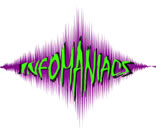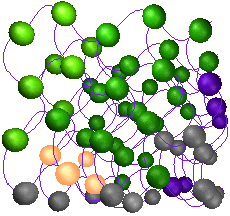 |  |
|
|
|
|
|
|
||
|
In 2007 we formed PharmaSURVEYOR to apply SURVEYOR to healthcare. You can use PharmaSURVEYOR to check out your own medications to see the level of combined risks from your regimen. PharmaSURVEYOR empowers consumers (especially baby boomers) and healthcare professionals with an online service to easily and quickly identify safer drug regimens for each patient. PharmaSURVEYOR continues our long standing interest in providing technical solutions to significant problems which impact many lives. We've spent many years working with government and military organizations including DARPA (The Defense Advanced Research Projects Agency) on intelligence and counter terrorism. When we learned that over 200,000 Americans die each year from Adverse Drug Effects of legally prescribed drugs, we were struck with the uneveness of resources being applied to this problem. Terrorism has resulted in less than 5,000 US deaths since 9/11 but legal pharmacuticals are responsible for over 1,000,000 (One Million) deaths during the same time! So we've turned our attention to healthcare and applied SURVEYOR to help identify problematic drug regimens and provide profiles of safer drug regimens in the hope of saving many lifes and making countless more lives more comfortable. If you'd like to see PharmaSURVEYOR in action check out Heathledgerdrugs.com to see how the combination of drugs he was taking caused his death. Even though Heath Ledger did not take any individual medication in excess, the combination proved to be deadly. PharmaSURVEYOR could have alerted Heath and his doctors to the risks and possibly prevented his death. |
In 2005 Infomaniacs spun out NeoLogical Corporation, a new company whose mission is to enable information superiority in Homeland Security, Bioinformatics, Commerce, and more. NeoLogical's first product, SURVEYOR, is based on Infomaniacs' thinktank research and fundamentally changes the way we interact with large volumes of information. SURVEYOR makes fast work of characterizing an information resource to meet complex requirements that have soft or hard specifications or just to better understand the interrelationships present in the information. A SURVEYOR user quickly pinpoints the most relevant region within an information resource and analyzes the comparative strengths and weaknesses of the optimal results discovered there, unhindered by dead ends, time sinks, and information overload. |
||
|
Synsyta provides contract research and development for government agencies and contractors. As a consortium of small companies, universites, standards bodies, and defense contractors, Synsyta conducts research for DARPA (the Defense Advanced Research Projects Agency) in areas as diverse as semantic interoperability for counterterrorism to network optimization for wireless mesh networks in the battlefield. Government agencies we've worked with include the DOD, the Navy, the Air Force and the GSA (General Services Administration). We've coordinated the work of standards bodies including the OMG (Object Management Group), W3C, Global Grid Forum, ISO, IEEE, and the W2COG (World Wide Consortium for the Grid). We typically put together teams for each contract and then act as chief architect and program manager for projects which bring together the top thinkers across disciplines to architect new solutions towards building the Model Driven Semantic Grid. |
|||
in eWeek On May 19, 2003, Eric Lundquist's Opinion column "Utility Meets Reality" discussed the move to Utility Computing and all its various names. He recognizes these many movements toward Utility Computing as movements towards Computing Fabrics as we first envisioned them including:
in eWeek On January 7, 2002 Rob Fixmer:
|
|||






